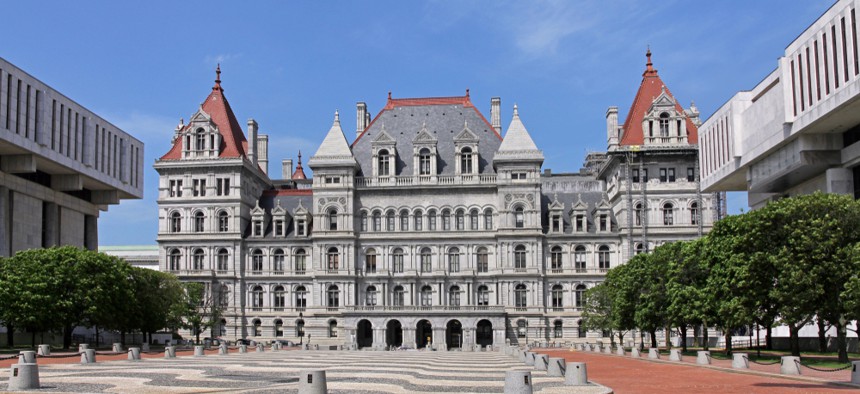Here's how the New York Legislature wants to fund human services

The state Capitol in Albany, N.Y. Shutterstock
A few nonprofit leaders are helping New York City plan for the future. Earlier this month, Mayor Bill de Blasio announced an advisory board that will help update the One New York: The Plan for a Strong and Just City initiative, first released in 2015. Topics they will confront include population growth, economic inequality, development, and sustainability.
More than three dozen figures from across government, organized labor, academia, business, and the nonprofit sector will take part. Among the big names to participate: City Council Speaker Corey Johnson; Gary LaBarbera, president of the Building and Construction Trades Council of Greater New York; and John Banks, president of the Real Estate Board of New York.
Among the nonprofit participants:
- Allison Sesso, executive director of the Human Services Council
- Christine Appah-Gyamfi, senior staff attorney at New York Lawyers for the Public Interest
- David Jones, president of the Community Service Society
- Jennifer Jones Austin, executive director of the Federation of Protestant Welfare Agencies
A new report examines how Gov. Andrew Cuomo wants New York City to pay more for family assistance grants. The governor’s proposed budget would require New York City – the only locality affected by the proposal – to pay about $125 million each year. This would affect cash assistance grants through the city Human Resources Administration and family shelter services in the Department of Homeless Services, according to the Independent Budget Office. The state Senate has rejected this proposal, while the Assembly would reduce it by half.
“This report deals with how this would affect cash assistance grants while a forthcoming brief will examine shelter services,” reads the first brief. “If implemented, the governor’s proposal would be the latest in a series of policy decisions at the state level that – combined with changes in the cash assistance caseload – have substantially increased the city’s share of cash assistance funding.”
The New York Women’s Foundation gave a record number of grants last year. About $11 million went to 175 community organization in support of women pursuing economic advancement, political inclusion, anti-violence initiative, and other women-oriented programming, according to a March 11 press release.
Both houses of the state Legislature have released their budget resolutions. The Assembly and state Senate do this in response to the governor’s proposed budget each year. This time around, both chambers supported a cost-of-living adjustment for direct care workers – a top ask from human services nonprofits that was not included in the governor’s budget. Here are a few other quick takes from the Assembly resolution and the Senate resolution.
The Assembly:
- Allocates $25 million to support a minimum wage increase for health and human service workers contracted with the state
- Enacts a 2 percent increase for salary raises for direct support professionals
- Requires the state to fully fund the implementation of Raise the Age for all local social services districts
- Restores cuts to preventive services for youth
- Allocates $25 million in capital funding for mental health community-based providers
The Senate
- Provides $3.8 million to restore the Human Services COLA in the last quarter of State Fiscal Year 2019-20.
- “Strongly encourages” the state to fully fund Raise the Age implementation in every local social services district
- Provides $10 million for grants to juvenile justice diversion programs
- Rejects the governor’s proposal to change child care inspection, training, and background requirements
- Supports background checks for current and prospective employees of residential foster care programs
